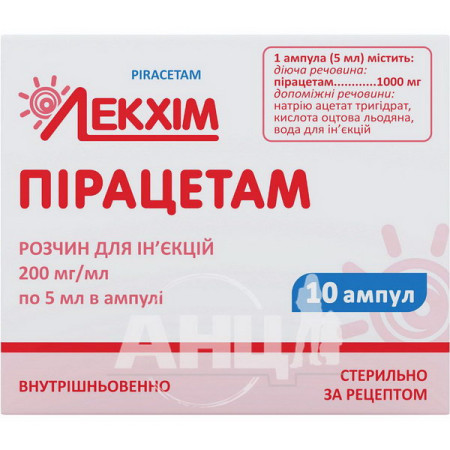Epirubicin Ebeve concentrate for solution for infusion 100 mg bottle 50 ml No. 1

Concentrate for solution for infusion "Epirubicin" Ebeve "is intended for the treatment of a wide range of neoplasms, including:
breast cancer; malignant lymphomas; soft tissue sarcomas; stomach cancer; liver cancer; pancreatic cancer; rectal cancer; cervical cancer; lung cancer; ovarian cancer; leukemia.Intravesical administration of epirubicin is indicated in the treatment of superficial bladder cancer (transitional cell carcinoma, carcinoma in situ) and for the prevention of recurrence after transurethral resection.
Composition
The active substance is epirubicin (1 ml of concentrate contains 2 mg of epirubicin hydrochloride).
Excipients: sodium chloride, diluted hydrochloric acid, water for injections.
Contraindication
Hypersensitivity to epirubicin hydrochloride or to any component of the drug, to other anthracyclines and anthracenediones; breastfeeding period.Intravenous use is contraindicated in: persistent myelosuppression, myocardiopathy, previous treatment with maximum total doses of epirubicin hydrochloride and/or anthracenediones, recent myocardial infarction, severe arrhythmia, in the presence of generalized infection, patients with severe liver dysfunction, unstable angina, severe inflammation of the oral mucosa and/or gastrointestinal tract.
Epirubicin therapy is contraindicated in patients with active bone marrow depression resulting from prior treatment with other antineoplastic agents or radiotherapy and in patients who have already received treatment with maximum cumulative doses of epirubicin hydrochloride and/or other anthracyclines (e.g. doxorubicin and daunorubicin).
Cardiac dysfunction, including a history, namely progressive heart failure, myocardial insufficiency of the IV degree (insufficiency at rest), severe arrhythmia and conduction disorders with serious hemodynamic disturbances, acute inflammatory heart diseases, unstable angina, acute myocardial infarction or myocardial infarction in history, which caused heart failure of the III and IV degrees, myocardiopathy. In combination with yellow fever vaccine.
Intravesical administration is contraindicated in patients with urinary tract infections, invasive bladder muscle tumors, cystitis, high residual urine volume, shrunken bladder, and hematuria. Special care is required in cases of difficulty in catheterization (particularly urethral obstruction due to a large intravesical tumor).
Method of application
Epirubicin is intended for intravenous or intravesical administration only.
Intravenous administration
It is recommended to administer "Epirubicin" Ebewe "through the catheter of the infusion system by free infusion of saline solution intravenously, making sure that the needle is correctly inserted into the vein. During infusion, care should be taken to avoid bruising. In case of bruising, the infusion should be stopped immediately.
Standard dose regimen
For epirubicin hydrochloride monotherapy, the recommended dose for adults is 60-90 mg/m2. Epirubicin hydrochloride should be administered over 3-5 minutes. The administration of the drug should be repeated at 21-day intervals according to the blood/bone marrow status.
If toxic effects develop, including severe neutropenia/neutropenic fever and thrombocytopenia (which may persist for up to day 21), the administration of the drug should be postponed or subsequent doses should be reduced.
Application schedule for high doses
For high-dose treatment, epirubicin hydrochloride can be administered by intravenous painful injections lasting 3-5 minutes or by intravenous infusions lasting up to 30 minutes.
Lung cancer. When used as monotherapy in high doses, epirubicin hydrochloride for the treatment of lung carcinoma should be administered according to the following schedules:
Small cell lung cancer (in previously untreated patients): 120 mg/m2 on day 1 every 3 weeks; non-small cell lung cancer (epidermoid, squamous, and adenocarcinoma) in previously untreated patients: 135 mg/m2 on day 1 or 45 mg/m2 on days 1, 2, and 3 every 3 weeks.The drug should be administered by bolus injection over 5-10 minutes or intravenous infusion over no more than 30 minutes. Lower doses (60-75 mg/m or 105-120 mg/m in high-dose regimens) are recommended for patients with reduced bone marrow reserve due to prior chemotherapy and/or radiotherapy, elderly patients, or patients with tumor infiltration of the bone marrow. The total dose per cycle can be divided and administered over 2-3 consecutive days.
Combination therapy. If "Epirubicin" Ebewe "is used in combination with other cytostatics, the dose should be reduced accordingly.
Intravesical administration
Epirubicin hydrochloride may be administered intravesically for the treatment of superficial bladder cancer and carcinoma in situ. Epirubicin should not be used intravesically for the treatment of invasive tumors that have penetrated the bladder wall; in such cases, systemic chemotherapy or surgery are more effective. Epirubicin hydrochloride has also been used successfully for the intravesical prevention of recurrence after transurethral resection of superficial bladder tumors.
For the treatment of superficial bladder cancer, the following regimen is recommended, using the dilution table: 8 injections per week at a dose of 50 mg/50 ml (dilution with saline or sterile distilled water).
If local toxicity is observed: it is recommended to reduce the dose to 30 mg / 50 ml.
Carcinoma in situ: up to 80 mg/50 ml (depending on the individual patient's tolerance).
For prevention: 4 injections per week at a dose of 50 mg / 50 ml followed by 11 instillations of an equal dose per month.
"Epirubicin" Ebewe "is ineffective when taken orally and should not be administered intramuscularly or intrathecally.
Intravenous use
The introduction should last for 5-10 minutes through the intravenous infusion system. In this case, it is necessary to make sure that the needle is correctly inserted into the vein, and the bottle with 0.9% sodium chloride solution should already be installed. This technique reduces the risk of extravasation and provides the possibility of flushing the vein with 0.9% sodium chloride solution at the end of the drug administration. Leakage of the drug Epirubicin "Ebeve" from the vein during administration can lead to tissue damage and even necrosis. Venous sclerosis is possible as a result of injection into thin vessels or with repeated injections into the same vein.
Intravesical use
The solution "Epirubicin" Ebewe ", administered through a catheter, should be left in the bladder for 1 hour, after which the patient should empty the bladder. To avoid untimely dilution with urine, the patient should be instructed that he should not drink liquid 12 hours before instillation. During the instillation process, the patient should be turned from side to side from time to time to ensure a more uniform effect of the drug solution on the walls of the bladder.
Solution preparation
"Epirubicin" Ebewe "should be diluted with 0.9% sodium chloride solution or 5% glucose solution.
The product should be used within 24 hours of first opening the vial stopper. Any unused solution should be discarded.
When storing the injection solution in the refrigerator, the drug may gelatinize. Restoration of consistency occurs after 2-4 hours at room temperature (15-25 °C) and shaking the vial with the solution.
Application features
Pregnant women
Epirubicin should be used during pregnancy only if the potential benefit to the woman outweighs the potential risk to the fetus.
Children
The efficacy and safety of the drug for the treatment of children have not been studied.
Drivers
No studies have been conducted on the effect of the drug on the ability to drive and use machines.
Epirubicin may cause acute attacks of nausea and vomiting, dizziness, which may lead to temporary impairment of the ability to drive and use machines.
Overdose
Acute overdose with epirubicin can cause severe myelosuppression (mainly leukopenia and thrombocytopenia), gastrointestinal toxicity (mainly mucositis) and cardiac complications (acute myocardial degeneration within 24 hours). Latent heart failure has been observed with anthracyclines from several months (up to 6 months) to several years after the end of treatment. Patients should be carefully monitored. If symptoms of heart failure appear, patients should be treated by conventional methods.
Treatment is symptomatic; in the event of severe myelosuppression, general supportive measures should be taken, namely blood transfusion, antibiotics, and isolation of the patient in a sterile room.
Epirubicin cannot be removed by dialysis.
Side effects
The most common side effects are myelosuppression, gastrointestinal disorders, anorexia, alopecia, and infection.
Interaction
"Epirubicin" Ebewe "should not be mixed with heparin due to their chemical incompatibility. When using epirubicin hydrochloride in combination with other cytostatics, they should not be mixed in the same syringe. In addition, epirubicin should not be diluted with alkaline solutions (causes hydrolysis).
Storage conditions
Shelf life - 2 years.
There are no reviews for this product.
There are no reviews for this product, be the first to leave your review.
No questions about this product, be the first and ask your question.










